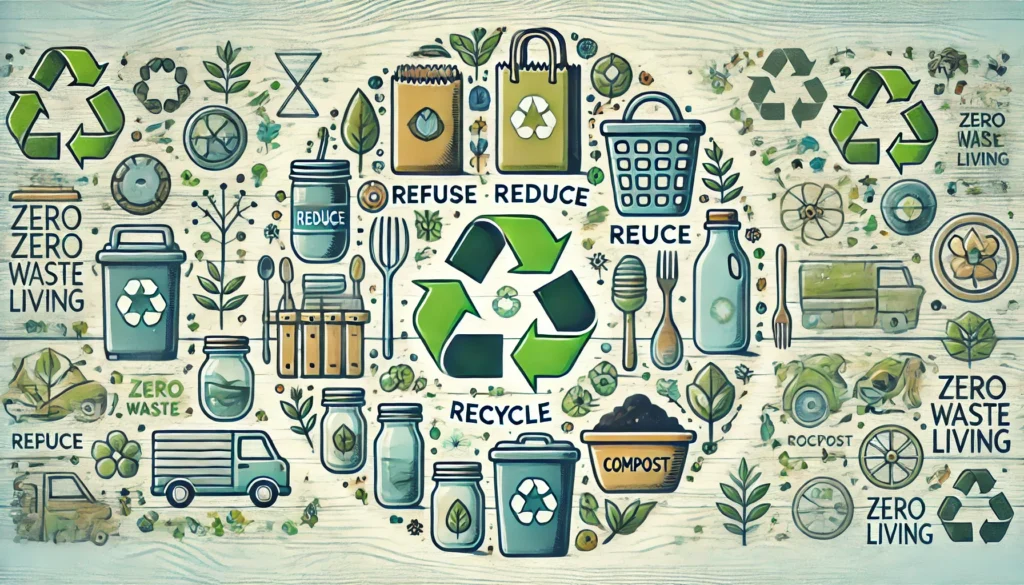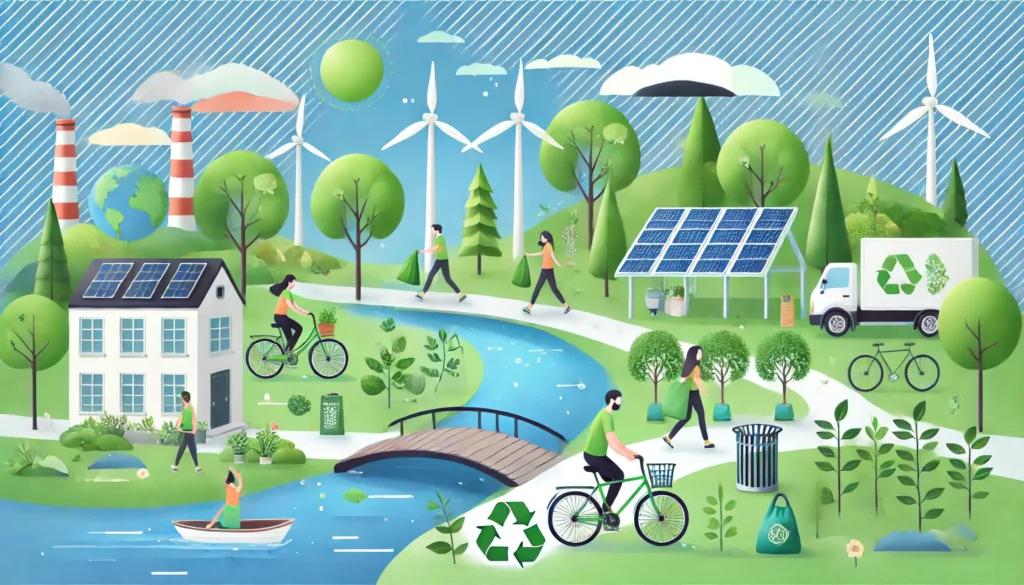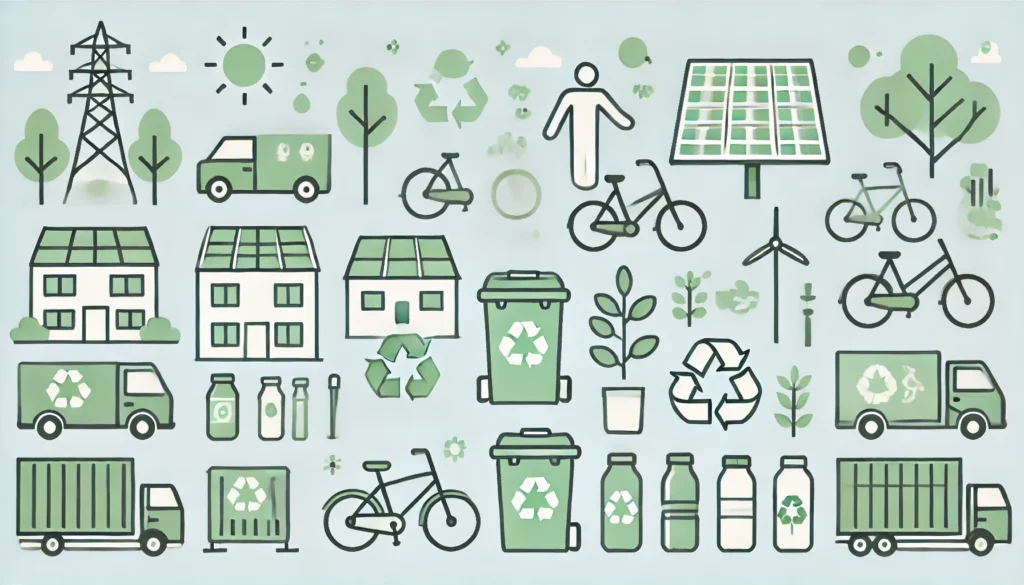Zero waste living is all about reducing the amount of trash we produce and rethinking our consumption habits. The 5 ‘R’s of zero waste living – Refuse, Reduce, Reuse, Recycle, and Rot – offer a clear, actionable framework for living more sustainably. By following these steps, we can minimize our impact on the environment and create a cleaner, greener world. In this post, we will break down each of the 5 ‘R’s with practical examples to help you start your zero-waste journey.
1. Refuse: Say No to What You Don’t Need
The first and most important step in zero waste living is to refuse things you don’t need. Many of the products we encounter daily, such as plastic bags, flyers, and freebies, are designed for one-time use and end up as waste. By refusing unnecessary items, we prevent waste before it starts.
Example:
The next time you’re at a store, refuse plastic bags and bring your own reusable bag. Politely decline promotional flyers and freebies at events that you’re unlikely to use. By saying no, you help cut down on the demand for single-use items.
2. Reduce: Minimize What You Do Need
After refusing items, the next step is to reduce what you actually need. Be mindful of your consumption and try to limit the amount of stuff you buy. By purchasing fewer items, you lower your environmental impact and reduce the clutter in your home.
Example:
Instead of buying new clothes every season, invest in high-quality, timeless pieces that last longer. Consider borrowing or renting items that you don’t use frequently, like party decorations or camping gear.
3. Reuse: Use What You Already Have
The third ‘R’ is reuse, which means finding new ways to use items you already own. By reusing products, you prevent the need to buy new ones and extend the life of materials. This reduces the waste that ends up in landfills.
Example:
Rather than buying plastic bottles of water, invest in a durable, reusable stainless steel water bottle. You can also repurpose glass jars from pasta sauces as storage containers for bulk foods or leftovers. Reuse your shopping bags, and opt for cloth napkins instead of paper ones.
4. Recycle: Properly Dispose of Recyclable Materials
When you can’t refuse, reduce, or reuse, the next step is to recycle. Recycling ensures that materials like paper, glass, and certain plastics are processed and reused to create new products. While recycling is helpful, it should be the last resort before disposal, as it requires energy to process materials.
Example:
Set up a recycling bin at home for paper, plastic, and glass products. Make sure to rinse out food containers before recycling them to avoid contamination. Be aware of your local recycling rules so that you can recycle properly and efficiently.
5. Rot: Compost Organic Waste
The final ‘R’ in the zero-waste hierarchy is rot, which refers to composting. Organic waste, like food scraps and yard trimmings, can be composted instead of thrown in the trash. Composting turns waste into nutrient-rich soil, which can be used in gardens, reducing the need for chemical fertilizers and keeping organic waste out of landfills.
Example:
Start a small compost bin in your kitchen for fruit peels, vegetable scraps, and coffee grounds. You can also compost yard waste, like grass clippings and leaves. If you don’t have a garden, many cities offer compost drop-off programs or curbside compost collection services.
The Path to Zero Waste Living
The 5 ‘R’s of zero waste living provide a simple framework for reducing your environmental impact. By refusing what you don’t need, reducing what you do, reusing materials, recycling when necessary, and composting organic waste, you can significantly cut down on the waste you produce. Zero waste living isn’t about perfection; it’s about making thoughtful, sustainable choices that benefit the planet. Start small, and gradually incorporate these steps into your everyday routine.
Discover more from Green Ecosystem - Renewable Energy, Agriculture, and Environmental Sustainability
Subscribe to get the latest posts sent to your email.


